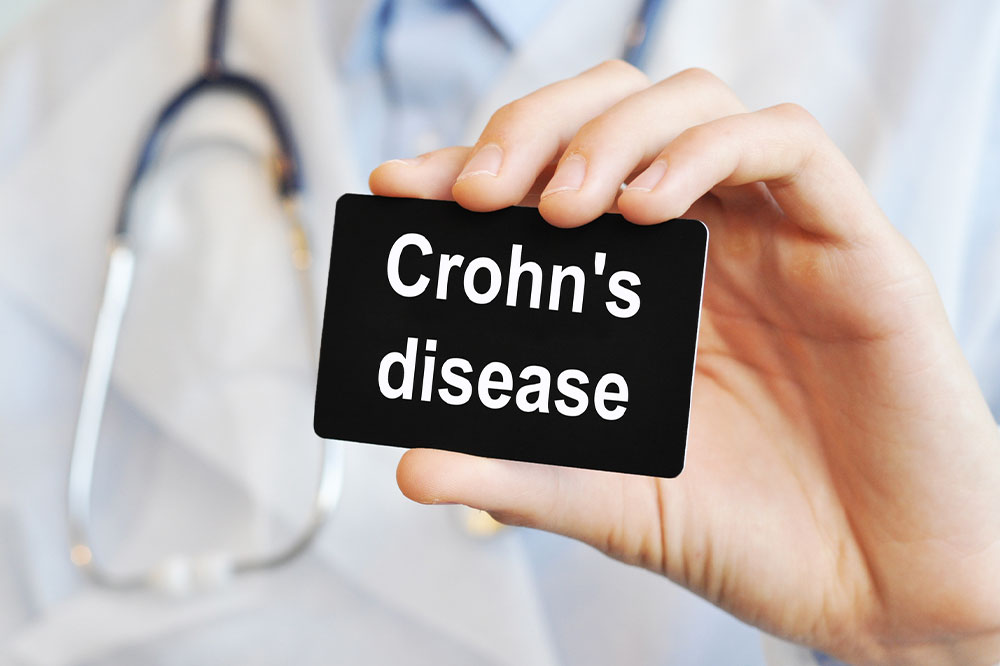
Crohn’s disease – Causes, symptoms, and management options
Crohn’s is an inflammatory bowel disease that causes inflammation and swelling in the digestive tract tissues. While this life-long disorder impacts different parts of the digestive system, the small intestine and lower parts of the large intestine are more commonly affected. Crohn’s disease causes many symptoms that make it necessary for people to receive timely care and treatment. Here are some of its known causes, risk factors, symptoms, and treatment options.
Causes
The exact cause of Crohn’s disease remains unknown. Earlier, experts believed stress and poor nutrition choices triggered the symptoms. However, recent research indicates these factors only aggravate the problem and are not the root cause. That said, multiple factors play a role in the development of Chron’s disease. Here are some known risk factors one should know about:
- Autoimmune problems
Certain bacteria or viruses in the digestive tract may trigger the immune system, causing it to attack healthy cells while trying to defend the body against these pathogens. This kind of atypical immune response may trigger Crohn’s disease. - Heredity
Those whose family members have Crohn’s disease are at a higher risk. Therefore, genes are said to play a role in the condition’s development.
Common symptoms
Crohn’s disease usually affects the large or small intestine. It can affect some parts of the intestine or the entire organ. In some cases, the disease affects only the colon (the end part of the large intestine). No matter in what part of the intestine the disease begins, it triggers some synonyms. While the signs develop gradually in some cases, they may occur suddenly in others. The intensity of the symptoms may range from mild to very severe.
The discomforts associated with Crohn’s disease are not usually persistent; there are periods when the symptoms do not appear at all. When the disease is active (that is, when a flare-up occurs), a person may experience some or all of the following:
- Fever
- Diarrhea
- Cramps and pain in the stomach
- Fatigue
- Blood in the stool
- Sores in the mouth
- Loss of appetite
- Pain or leaking of discharge from or around the anal area due to inflammation in the colon
Symptoms in the severe stages
When Crohn’s disease becomes severe, it may affect other organs, leading to symptoms unrelated to the intestinal tract. Some uncommon signs include:
- Inflamed skin, eyes, and joints
- Inflamed liver and bile ducts
- Development of kidney stones
- Anemia due to iron deficiency
- Growth delay in young children
Symptoms that require urgent care
In most cases, Crohn’s disease symptoms develop slowly, so people are diagnosed when the condition reaches an advanced stage. One must consult a doctor if there are persistent changes in their bowel movements or they experience some or all of these:
- Severe abdominal pain that does not go away
- Frequent nausea and vomiting
- Diarrhea that lasts more than a couple of weeks
Treatment options
Crohn’s disease is not curable. Treatment aims to manage the flare-up episodes and symptoms. Therefore, most treatments depend on which symptoms are occurring and their severity. The goal of the treatment plan is also to manage the complications that may occur over time. In general, a doctor may recommend any of the following treatment options:
- Treatments to manage the symptoms
Doctors may recommend treatments for infections, inflammation, diarrhea, and other symptoms. Some may be administered to suppress the immune system so it does not attack healthy cells. - Bowel rest
Crohn’s disease causes inflammation of the bowels. Therefore, to help the intestines heal, patients may be recommended to avoid food or beverages for a while. One may get the necessary nutrition intravenously during such times. - Surgery
Surgical procedures are used to treat complications. In most cases, these procedures treat bleeding, blockages, and holes in the intestine.
Remedial measures and lifestyle changes
Living with Crohn’s disease requires making specific lifestyle changes and taking remedial measures to manage the symptoms and lower the number of flare-ups. Here are a few remedies and lifestyle changes one may consider:
- Manage stress
Constant stress is one of the biggest triggers of Crohn’s disease flare-ups. Therefore, patients must practice stress management techniques. - Make healthy nutrition choices
Since Crohn’s disease affects the intestines and digestive system, it is crucial to eat foods that relieve the symptoms. One can reach for meals that will soothe the inflammation and make it easier for the intestines to function properly. - Avoid raw foods
Those with Crohn’s disease are usually recommended to eat well-cooked foods. Raw foods put a lot of strain on the intestines during digestion, triggering the symptoms. - Keep away from greasy and fried foods
These foods generally cause acid reflux, bloating, and gas, which can trigger inflammation and cause flare-ups.




